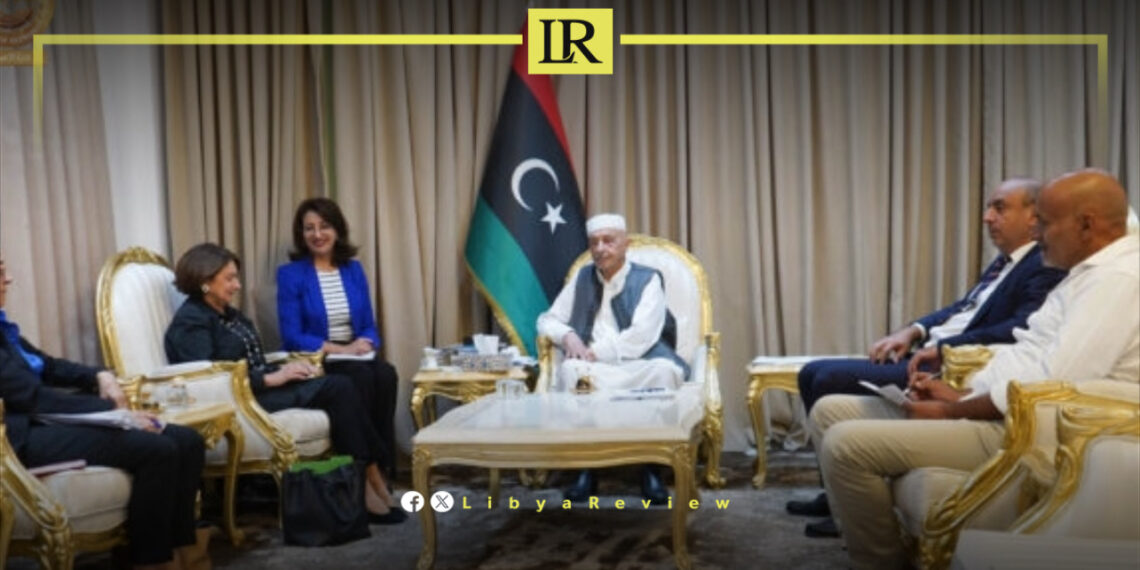On Wednesday, Libyan Speaker of the Parliament, Ageela Saleh, met with Rosemary DiCarlo, the United Nations (UN) Under-Secretary-General for Political and Peacebuilding Affairs, to discuss the ongoing crisis surrounding the Central Bank of Libya.
DiCarlo was joined by Stephanie Khoury, Deputy Special Representative of the UN Secretary-General and acting head of the UN Support Mission in Libya (UNSMIL). The talks focused on finding solutions to the Central Bank crisis, which has become a major obstacle to stabilizing the country’s economy and financial system.
The meeting addressed key issues, including the implementation of the Libyan Political Agreement and the Bouznika Agreement, which lay out procedures for appointing officials to key sovereign positions. Saleh emphasized that resolving the crisis is critical to preventing further damage to the Libyan economy. He blamed the Presidential Council for overstepping its authority, accusing it of interfering in the affairs of both the House of Representatives and the High Council of State, and directly contributing to the crisis at the Central Bank.
Saleh further criticized the Presidential Council for its mishandling of the Central Bank, including allowing breaches that compromised important financial and informational systems. He argued that these actions have exacerbated Libya’s financial instability.
In response, UN representative Rosemary DiCarlo highlighted the importance of resolving the Central Bank crisis as a first step towards resuming the political process.
DiCarlo stressed that stabilizing the Central Bank is essential for forming a unified government, resolving political divisions, and moving towards holding presidential and parliamentary elections. She also praised the progress Libya has made in reconstruction and national reconciliation, particularly in the southern regions.
The Central Bank of Libya has been a focal point of the country’s political conflict since the civil war split the nation between rival factions in the east and west. Control over the Central Bank, which manages Libya’s oil revenues and public finances, has become a contentious issue, as both sides vie for power.


